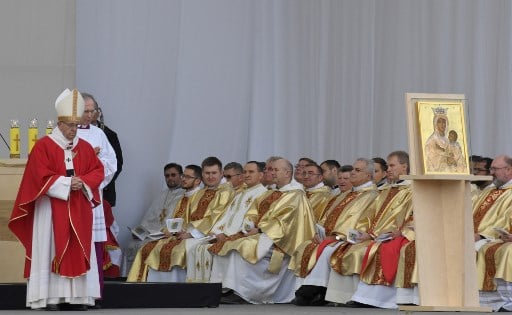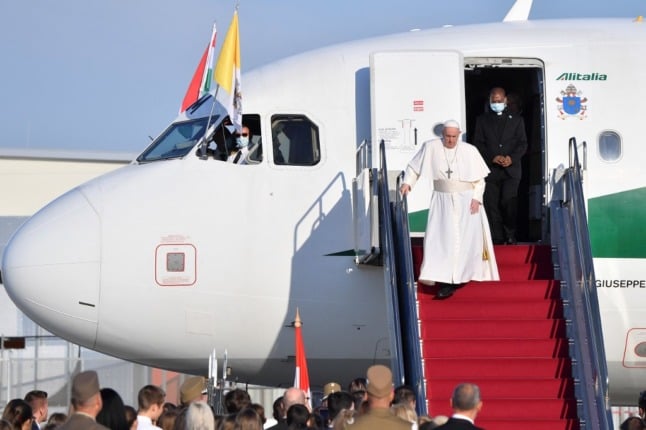“We know – and you have told us – that many young people do not turn to us for anything because they don't feel we have anything meaningful to say to them,” the pontiff said during a visit to Estonia.
“They are outraged by sexual and economic scandals that are not met with clear condemnation,” he added on his last day of a tour of the three Baltic countries.
Speaking to young Estonian Christians at a Lutheran church in Tallinn, the pope said many youths find the Church's presence “bothersome or even irritating”.
“We ourselves need to be converted. We have to realise that in order to stand by your side we need to change many situations that, in the end, put you off,” he added.
The Catholic Church has been rocked by a fresh wave of devastating claims of sexual abuse committed by clergy across the globe.
Scandals in Australia, Europe, and North and South America have involved widespread claims of abuse — and cover-ups — by clergymen and lay members with one Vatican archbishop describing it as the church's “own 9/11”.
Germany's Catholic Church on Tuesday released a damning report showing that in Germany alone, almost 3,700 minors were assaulted between 1946 and 2014.
READ ALSO: Pope Francis silent on claim he ignored abuse
'Love is not dead'
The pope himself has yet to respond to cover-up allegations levelled against him.
Italian Archbishop Carlo Maria Vigano has claimed the pontiff ignored abuse allegations against prominent US cardinal Theodore McCarrick for five years.
The now 88-year-old cardinal was accused of sexually abusing a 16-year-old boy half a century ago, a charge he denies.
But in an unprecedented move, Francis accepted his resignation as a cardinal in July.
In an interview broadcast Tuesday, Lithuanian President Dalia Grybauskaite came to the defence of the pope, whom she welcomed to her majority-Catholic Baltic country over the weekend.
Without naming sexual abuse scandals, Grybauskaite told public radio LRT that the pontiff carries a “huge cross for all those who made mistakes that need to be corrected”.
“This pope is not afraid to do that. He is not afraid to talk about that but he sees a huge resistance inside and outside the church. It is not easy for him.”
Ahead of his Baltic tour, the pope accepted the resignations of two more bishops from Chile, which is investigating more than 100 cases of sexual abuse by the clergy.
On Tuesday, the pontiff tried to reassure Estonia's young Christians.
“Love is not dead,” he said, rebutting the lyrics of a popular local song.
READ ALSO: Protestant Latvia welcomes pope
Resistant to religion
The pope was notably responding to the story of Lisbel, an 18-year-old Lutheran who spoke of finding comfort in religion after growing up with an unloving alcoholic father.
Many young people “see that their parents no longer love one another, that the love of newlyweds soon fades,” he said.
“They see a lack of love in the fact that nobody cares that they have to migrate to look for work.”
Adeele, an 18-year-old Lutheran, said she was “grateful” to the pope for the visit, adding that “he creates an atmosphere of understanding and respect”.
Like the country as a whole, many of the young people in attendance said they are not religious.
Thirteen-year-old Linda Pajula for example told AFP that she came to the meeting because “it seemed like a fun experience”.
She said the pope's speech “might have been difficult for me, but I did understand most things.”
An EU and NATO member, Estonia is a small Baltic country where a quarter of the population is ethnic Russian.
Sixteen percent of the population is Orthodox, 10 percent is Lutheran and only 6,000 residents are Catholics.
The majority of Estonians say they are resistant to religion.



 Please whitelist us to continue reading.
Please whitelist us to continue reading.